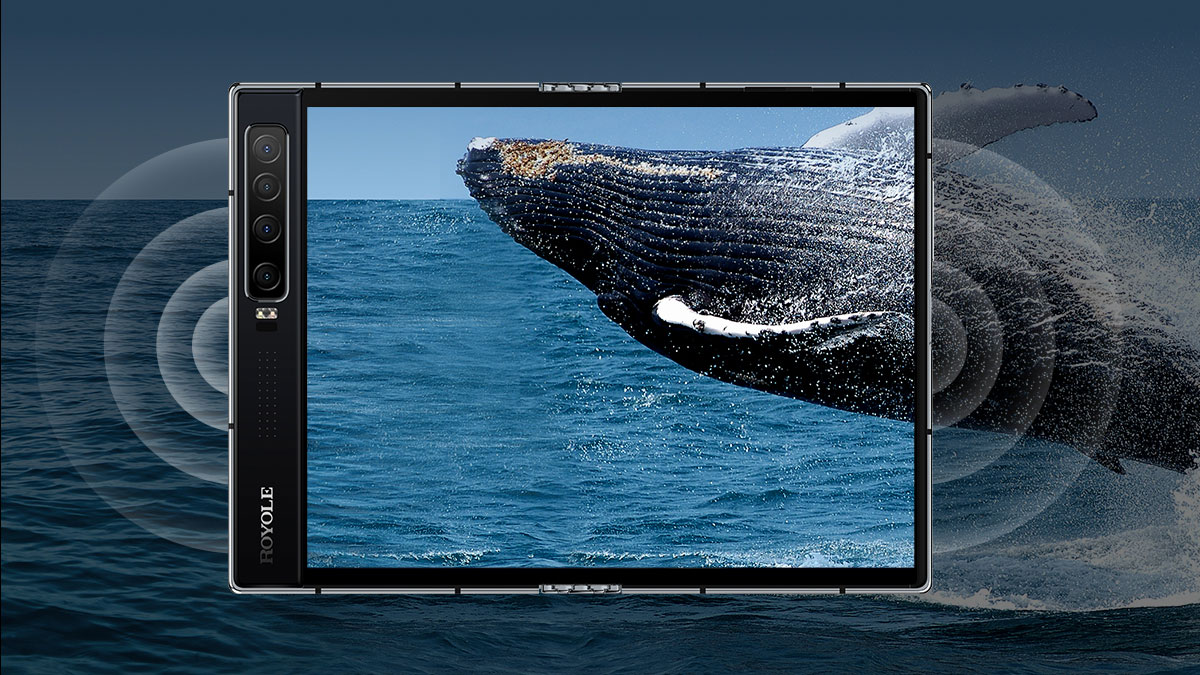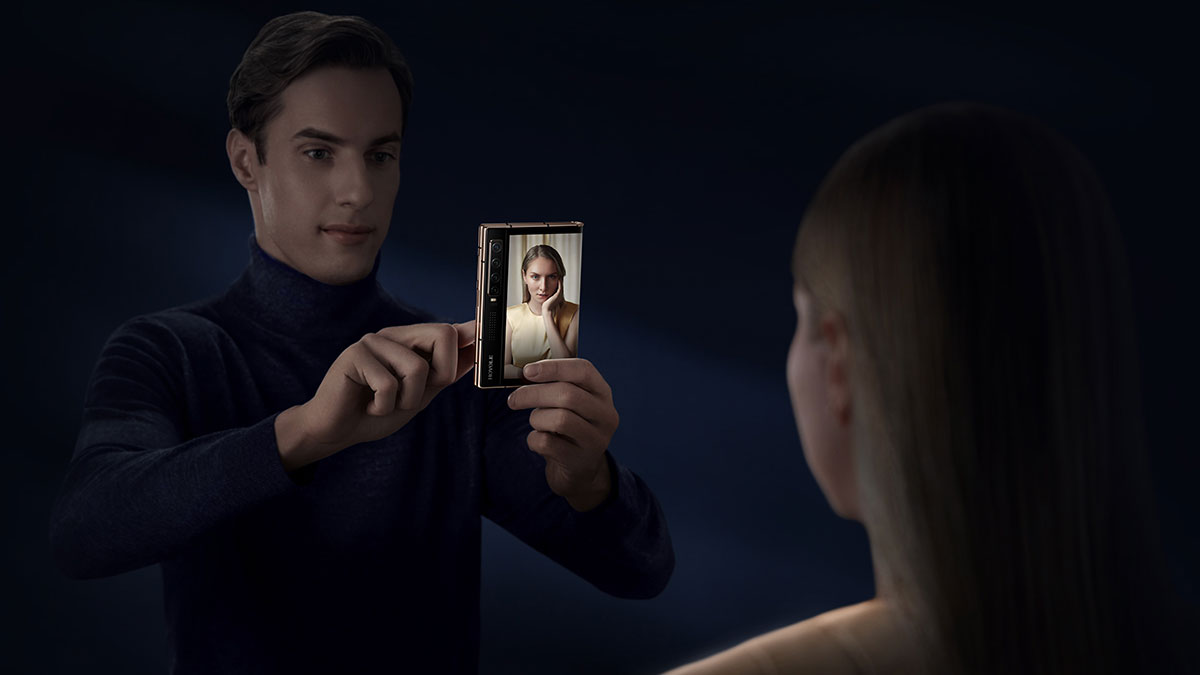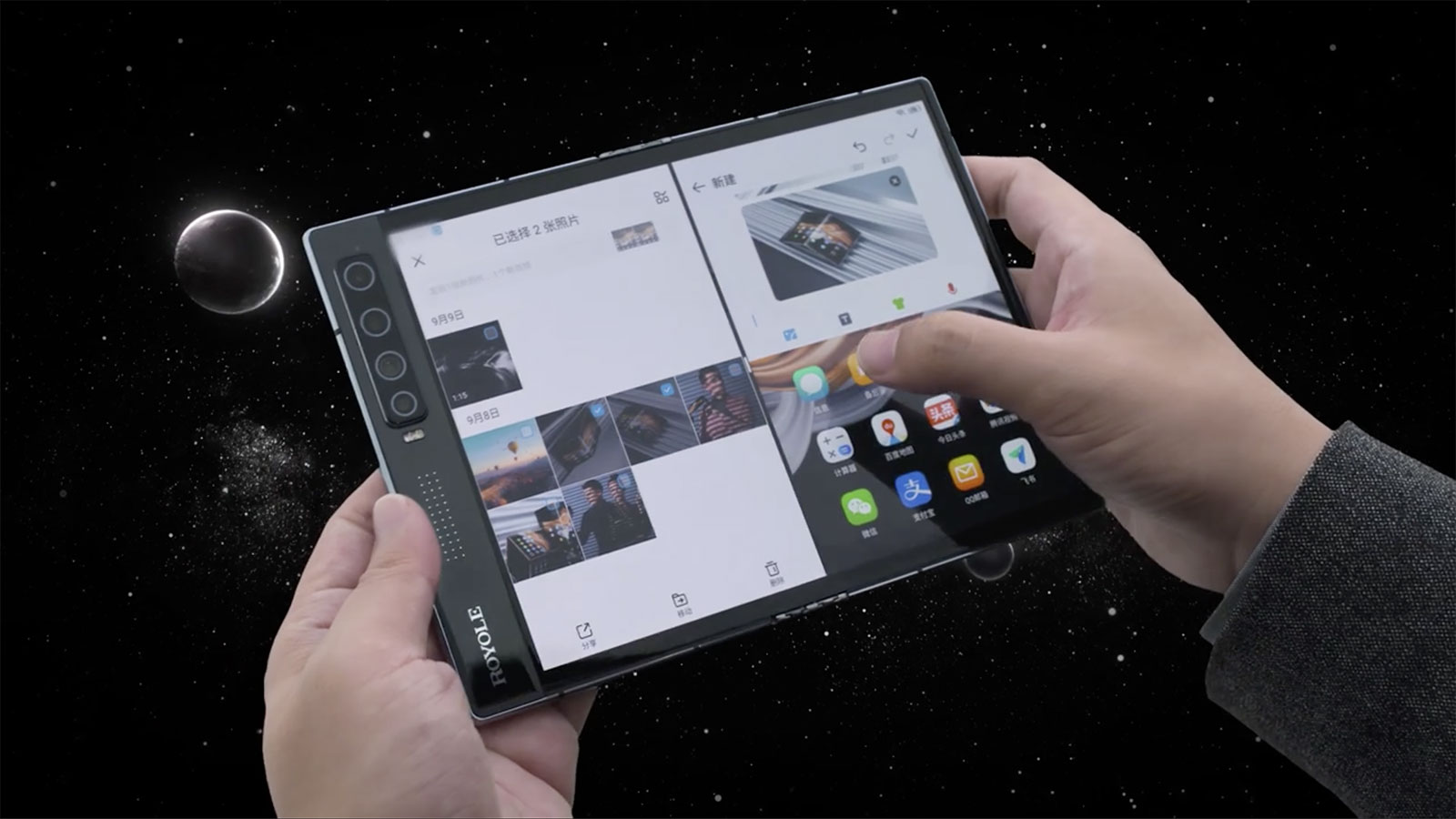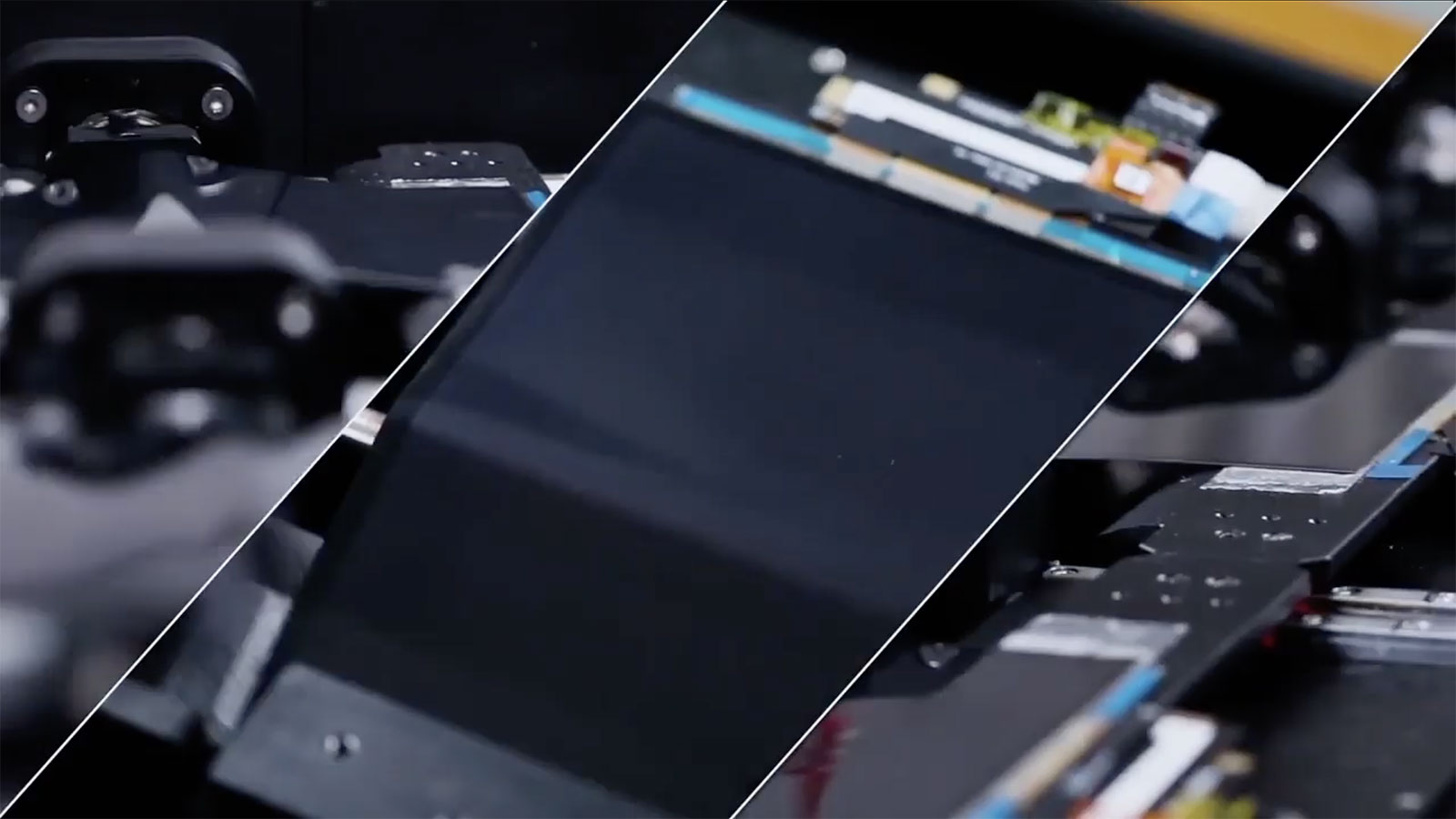Back in March, we got a glimpse of Royole’s second-gen flexible phone, the 5G-enabled FlexPai 2, which takes advantage of the company’s latest OLED panel for its outward-facing flexible screen — a similar form factor to that of Huawei’s Mate Xs. This new panel supposedly comes with improved bend radius, better display performance and, most importantly, reduced creasing down the seam. The FlexPai 2 obviously missed its original Q2 2020 launch date, but as of today, the wait is over.
At a livestream event today, CEO Bill Liu announced that the FlexPai 2 is available for pre-ordering via Royole’s website and JD.com right now, with the official retail launch taking place at 10AM China time on September 25th. The base model with 8GB RAM and 256GB storage is asking for 9,988 yuan (about $1,470), whereas a higher-end model with 12GB RAM and 512GB storage will cost 11,588 yuan ($1,710) when it becomes available later. There are three colors in total: “Cosmic Gray,” “Midnight Black” and “Sunrise Gold.”

Compared to its competitors, Royole has once again priced its phone-tablet hybrid rather aggressively. In China, Huawei’s Mate Xs — which also uses an outward-facing flexible screen — costs 16,999 yuan or about $2,510, which is significantly more than even the higher-end FlexPai 2. Samsung’s Galaxy Z Fold 2 is only asking for $1,999 in the US, but it’s still more expensive than Royole’s offerings.
In the same event, Liu finally shared detailed specs of the FlexPai 2. Just to recap, we already knew about the Qualcomm Snapdragon 865 processor, 7.8-inch display (1,920 x 1,440), quad cameras and stereo speakers. When folded, you can either use the 5.5-inch “main” screen (1,440 x 900) which offers shortcut buttons along the hinge, or switch to the smaller 5.4-inch side (1,440 x 810) with the cameras next to it.

Speaking of, we finally have the camera specs: there’s a 64-megapixel f/1.89 main camera, a 16-megapixel f/2.2 ultra-wide camera, an 8-megapixel f/2.4 telephoto camera (3x zoom) and a 32-megapixel f/2.0 portrait camera. Much like its predecessor, the FlexPai 2’s camera app offers a dual-screen photography mode which lets your subject see himself or herself in the secondary screen.

Also revealed today was a touchpad located below the cameras. This can be used to wake the display with a double tap while on standby, and when using apps, a double tap toggles split screen mode with up to three screens, courtesy of Royole’s Android 10-based waterOS 2.0.
The rest of the fresh specs include the 4,450mAh battery (a bump from the previous 3,970mAh), the 6.3mm and 12.8mm thicknesses when opened and closed, respectively, the 339-gram weight (about 12 ounces) and 5G bands — these appear to be mostly China- and Europe-friendly.

Liu also announced that the FlexPai 2’s third-generation Cicada Wing FFD (Fully Flexible Display) turns out to be more durable than expected. The panel was originally tested to last for over 200,000 bends, which is the benchmark for the latest foldable phones. However, with the help of China’s National Institutes of Metrology, this panel is now certified to last over a staggering 1.8 million bends. It’ll be interesting to see how Samsung will respond to this figure.
The foldable phone race has been going on for at least three years, but due to various manufacturing hurdles, there are still only a few contenders, with Samsung, Motorola, Huawei and Royole being the only brands available in this market at this very moment. That said, there’s no word on whether Royole will be bringing the FlexPai 2 to other markets. And even if you buy an imported version, chances are you still can’t side load Google services into the unit — as is the case with the original FlexPai.
There are also those who believe other form factors is the way to go, with LG offering a snap-on secondary screen as a more affordable alternative, along with the more recent twist-swivel-screen and, potentially, a slide-out screen in the near future. At the end of the day, it’s always good to have more options in the consumer market.
via https://AiUpNow.com September 22, 2020 at 01:00AM by , Khareem Sudlow,
